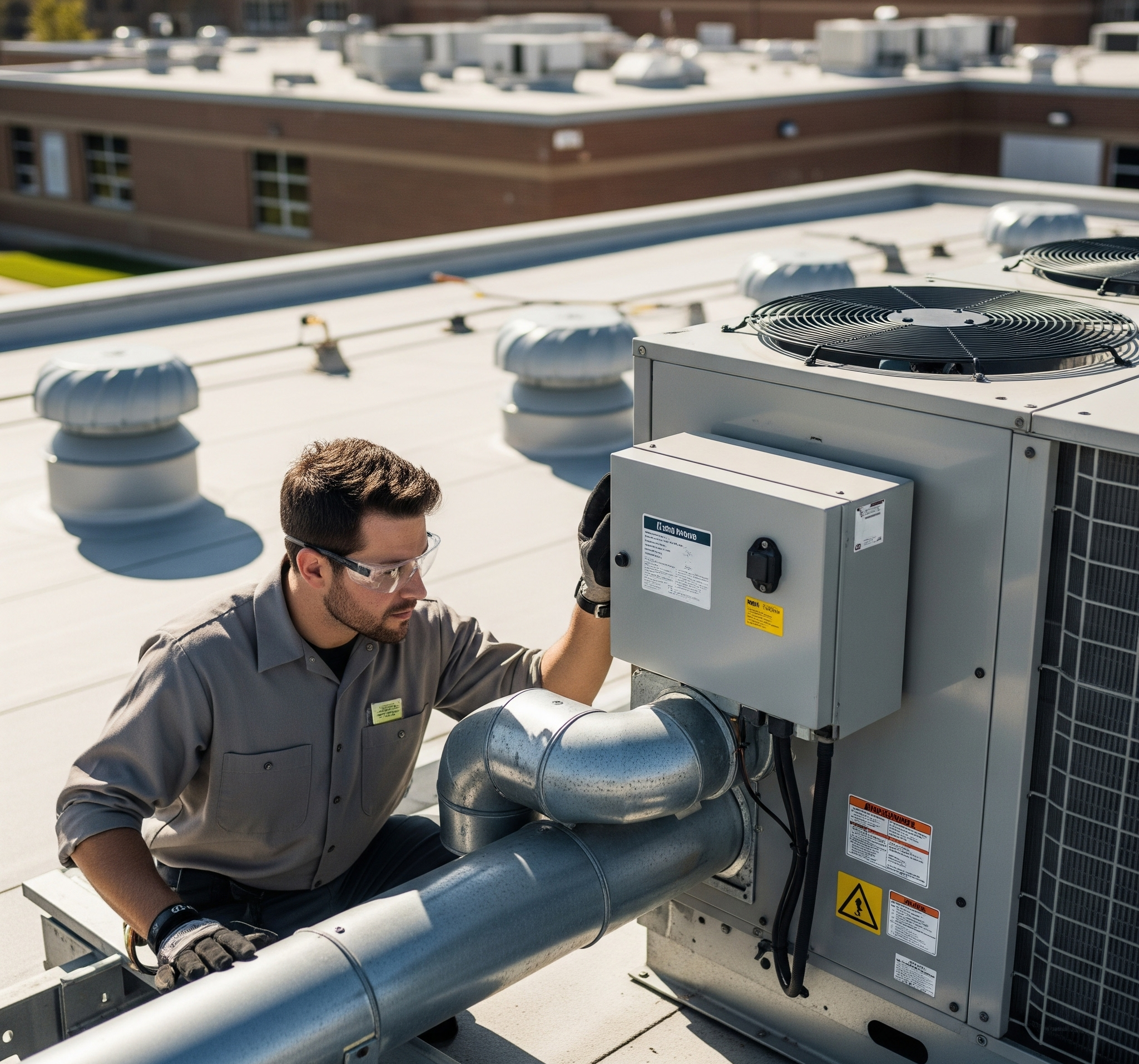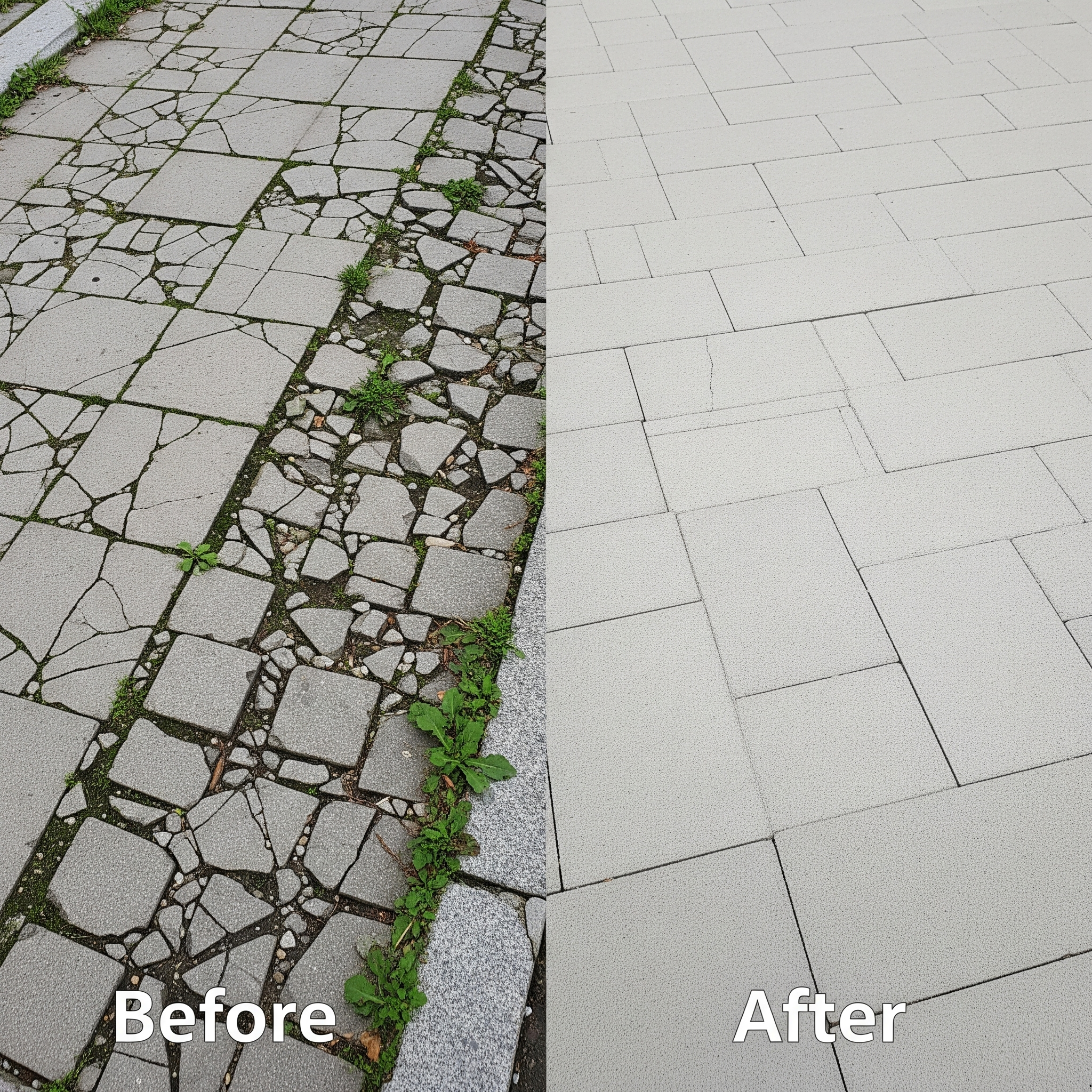What Every School Facility Manager Should Inspect Before Students Return
Ensure Safety, Spark Learning: A Back-to-School Facilities Checklist That Works
The Calm Before the Bell Rings
Before the first school bell chimes, the real work begins behind the scenes. Long before classrooms buzz with student chatter or teachers begin their morning routines, school facility managers are already moving through corridors, unlocking doors, and inspecting every inch of the building. From leaky faucets and cracked tiles to air filters and emergency lighting systems, they are the quiet force ensuring the school environment is not just operational—but optimized for learning.
School facility managers are the unsung heroes preparing a safe, clean, and inspiring space for students and staff alike. Their role extends beyond basic maintenance—it’s about shaping the atmosphere where education happens. “Our goal isn’t just to prepare buildings—but to prepare minds,” says Linda, a Facility Manager for a Northeast Ohio K–12 district. “If a student walks into a clean, safe, and well-lit environment, you’ve already shaped their mindset for learning.”
This blog post is designed to do just that—to help school facility managers start strong by providing a comprehensive, actionable checklist that ensures no detail is overlooked before students return. Our objective is to bridge the gap between everyday maintenance routines and the broader mission of educational success. By reinforcing the link between physical conditions and student well-being, this checklist empowers facilities teams to be more than caretakers of buildings—they become enablers of safe, healthy, and high-performing learning spaces.
Drawing from real-world experiences, operational best practices, and updated safety standards, this guide will walk you through what to inspect, when to inspect it, and how to align your efforts with the academic calendar. Whether you manage a rural elementary school or an urban charter campus, this checklist is your strategic tool for a seamless school reopening.
Let’s begin.
Classrooms: More Than Just Desks and Chairs
✅ Inspect:
Ceiling tiles for water damage or mold
Wall integrity (peeling paint, cracks)
Electrical outlets and switches
Windows: operation and security locks
Whiteboards/Smartboards functionality
Air quality and ventilation
Pro Tip: Use an IAQ (Indoor Air Quality) meter to check CO₂ levels in frequently used rooms.
Restrooms: First Impressions Matter
Students judge cleanliness from the restroom. Period.
✅ Inspect:
Plumbing (flush function, drainage, leaks)
Water pressure and temperature
Soap and hand-dryer stations
Tile and grout condition
Odor and ventilation
Tip: Use ATP swab tests to detect microbial contamination on high-touch surfaces.
Industry Insight: 83% of parents say a school's hygiene influences their perception of school safety (Source: CMM Facility Cleaning Study)
HVAC & Air Quality: The Silent Defender
✅ Inspect:
Air filter replacement dates
Thermostat calibration
Mold or condensation signs around vents
Ventilation in science labs, nurse stations, and gyms
Seasonal Relevance: Summer heat and stormy humidity in July and August can stress aging HVAC systems. Pre-opening checks can prevent mid-semester breakdowns.
Security & Safety Systems: Lock It Down
✅ Inspect:
Door locks and panic bars
Window integrity and alarms
Fire alarm panels and intercom systems
Security cameras & motion detectors
Emergency exits: visibility and accessibility
Bonus: Check the fire extinguishers’ pressure gauge and last inspection date.
Story Angle: Share a real-world example of how one faulty door lock led to a security scare and what the district changed afterward.
Cafeterias & Food Service Areas: Clean Enough to Eat Off
✅ Inspect:
Refrigeration units (temperature logs)
Pest control records and traps
Grease traps and kitchen hood vents
Tile floors: slip-resistance tests
Handwashing stations and signage
Health Compliance: Schools must comply with both local health codes and USDA standards for child nutrition environments.
For schools in Northeast Ohio, freeze-thaw cycles over the winter and spring cause pavement damage. Summer is prime time for repairs.
Emergency Supplies & Compliance Documents
✅ Check:
First aid kits
Defibrillators (AEDs)
Spill kits and MSDS records
OSHA posters and compliance binders
Evacuation maps posted in all common areas
Quick Tip: Include digital backups and hard copies of safety protocols in an easily accessible binder in the FM’s office.
Transportation & Parking Areas
✅ Inspect:
Bus loading zones: signage and traffic flow
Parking lot striping and signage
Lighting and CCTV
Drainage after summer storms
ADA compliance for accessible spots
Bonus: Coordinate with local authorities if construction detours may affect school traffic patterns.
Technology & Infrastructure
✅ Inspect:
Wi-Fi coverage testing in all classrooms
Projectors, intercoms, digital clocks
Charging stations and power surge protection
Security system software updates
Modern Expectation: Schools are now hybrid hubs of tech + teaching. Ensuring tech-readiness is just as critical as clean floors.
Ready Buildings, Ready Students
When students return, the smallest detail can shape their perception of safety, trust, and belonging. Whether it’s a flickering hallway bulb, a sticky classroom door, or a malfunctioning faucet in the restroom, each element within a school environment sends a message—consciously or not—about care, order, and readiness. Facility managers aren’t just fixing things; they’re setting the tone for the school year.
The days and weeks before students arrive are a crucial window of opportunity. During this time, facility teams have the unique responsibility of transforming school buildings into safe, welcoming, and fully operational spaces that promote learning and ease parental concerns. It’s not just about function; it’s about building confidence in the institution’s ability to protect, support, and inspire its students. A clean classroom communicates respect. A working HVAC system ensures comfort. Clear signage, repaired steps, and sanitized restrooms all contribute to a broader sense of preparedness and community well-being.
These invisible efforts by school facility managers form the foundation for a successful academic year. They are the first line of defense against disruption, illness, and discomfort. When a building is truly “student-ready,” it says to every child who walks through the doors: You matther here. We’ve prepared this space with you in mind.
Start your facility's back-to-school inspection now. Book a pre-term consultation with our facility readiness team.
Immaculate Management Group – Reliability. Attention to Detail. Proactivity. Efficiency.



